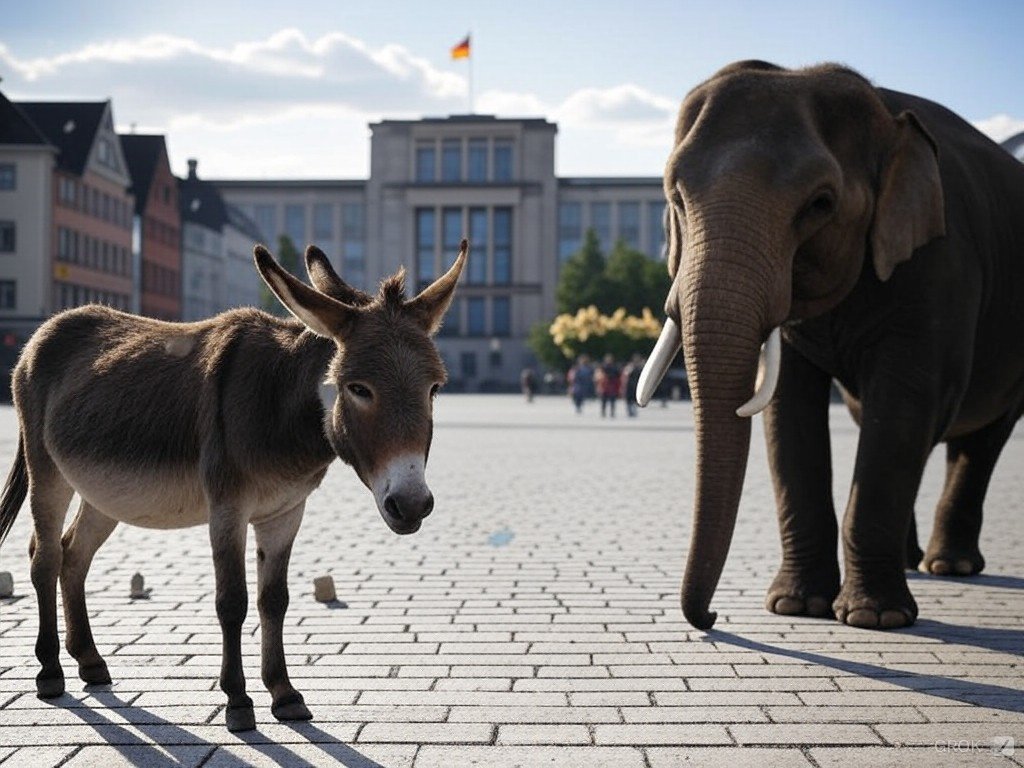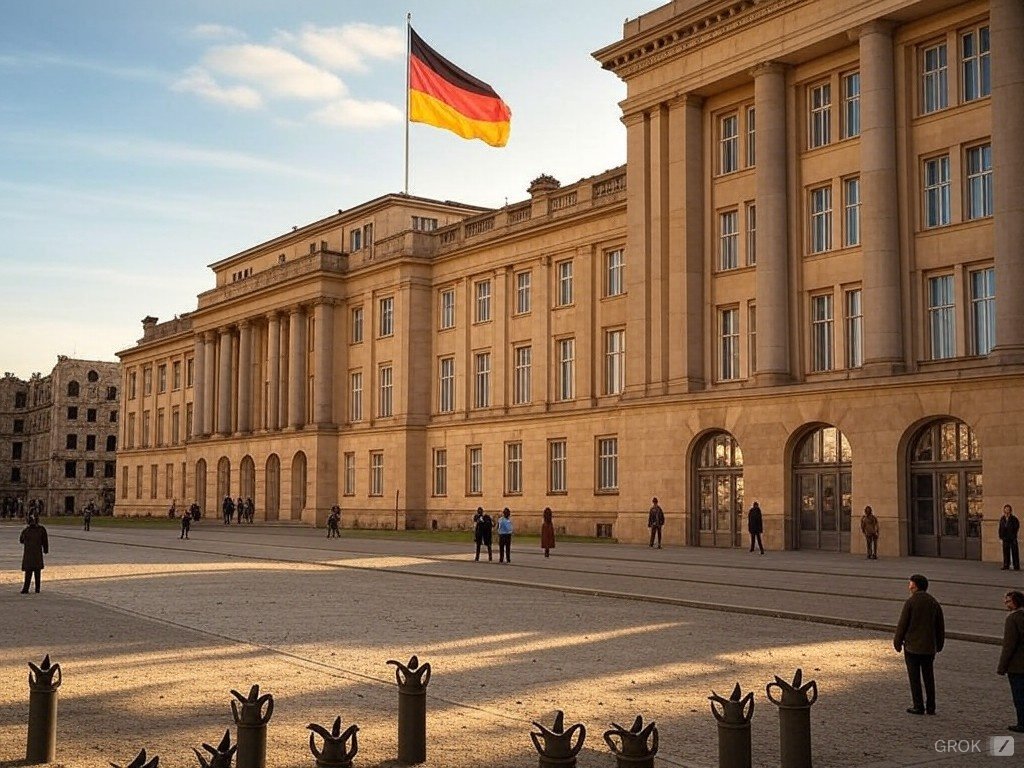
Opening Remarks
In discussions of government shutdowns, the German system presents a fascinating case. Since World War II, the German government has maintained a steady course, avoiding the kind of shutdowns that have occasionally paralyzed other nations. Understanding the German Government Shutdown, or rather the lack thereof, offers valuable insights into their unique political landscape. Despite historical challenges like the severe unemployment crisis in 1932 when unemployment in Germany reached six million with industries operating at half capacity, and foreign trade plummeted by two-thirds between 1929 and 1932, the modern German government has established a system that keeps it running smoothly.
Germany’s political framework has been shaped by its history, and this has led to a stable and functional system. The aim has always been to create a resilient government that can withstand various challenges without halting its operations. This approach has proven effective, even when faced with significant economic or political hurdles.
One key aspect of this system is the reliance on coalition governments. Multiple political parties join forces to form a majority, ensuring a balanced and stable approach to governance. This setup requires the parties to work together and agree on key issues, which reduces the likelihood of conflicts that could disrupt government operations.
Additionally, Germany’s budget planning process is designed to prevent shutdowns. The process is collaborative, involving various stakeholders to reach a consensus. This reduces the chances of deadlock situations that could lead to a shutdown. Germany’s legal framework also plays a crucial role in maintaining government operations. The constitution provides clear guidelines to ensure that essential services and functions continue, even during political changes.
Another important factor is the emphasis on public services. Germany prioritizes the continuous delivery of healthcare, education, and other public services, regardless of political or economic issues. This focus helps ensure that the daily lives of citizens are not disrupted, maintaining trust in the government’s ability to function effectively.

Reliable Coalition Governments
Germany’s political stability is largely due to its coalition government system. This structure involves multiple political parties coming together to form a majority, promoting a balanced approach to governance. The idea is that no single party holds all the power, which encourages collaboration and compromise.
Historically, Germany learned the hard way about the dangers of political instability. For instance, during the September 1930 Reichstag elections, parties like the Nazis and Communists significantly increased their votes, creating a volatile environment. (the Nazis grew their share sevenfold to 18%, while Communists reached 13%). To avoid such chaos, modern Germany’s system requires political parties to form coalitions. These coalitions are bound by agreements that outline how they will work together, minimizing conflicts that could lead to a government shutdown.
These coalition agreements are more than just formalities. They include detailed plans and rules that all participating parties must follow. This setup ensures that everyone has a stake in keeping the government running smoothly. Because the agreements are made before the coalition takes power, they prevent many disagreements from escalating into full-blown crises.
In contrast to systems where a single party can dominate and make unilateral decisions, Germany’s coalition governments must continually negotiate and compromise. This fosters a culture of dialogue and mutual respect among different political groups. As a result, there’s less chance of hitting an impasse that could halt government functions.
Overall, the coalition government system in Germany ensures that political stability is maintained through constant collaboration and pre-agreed rules. This structure significantly reduces the likelihood of conflicts that could disrupt government operations, providing a model of stability that many other countries might find beneficial.

Budget Formulation and Approval
Germany’s approach to budget planning is another reason for its uninterrupted government operations. The budget formulation and approval process in Germany is thorough, with a strong emphasis on consensus and collaboration. Unlike in the U.S., where budget disagreements can lead to a stalemate and potential shutdowns, Germany’s process aims to include all stakeholders in the decision-making process. This is especially relevant given historical financial challenges, such as when Germany’s debt to American investors reached nearly 15 billion marks by 1929 . By ensuring broad agreement on budgetary matters, Germany effectively sidesteps the deadlocks that often trigger shutdowns in other systems.
The budget process starts with the federal government preparing a draft budget. This draft is then discussed in detail with various political parties and interest groups. The goal is to reach a consensus that reflects a broad spectrum of views and needs. This collaborative approach minimizes the risk of major disagreements that could halt the approval process.
Once the draft budget has been discussed and modified to accommodate various perspectives, it moves to the Bundestag (Germany’s federal parliament) for approval. The Bundestag reviews and debates the budget, making further adjustments as needed. Because the draft has already been shaped by a wide range of inputs, it is more likely to pass without significant conflict.
After the Bundestag approves the budget, it goes to the Bundesrat (the federal council representing the states) for final approval. This two-tier approval process ensures that both federal and state interests are considered, adding another layer of stability.
The emphasis on consensus and collaboration throughout the budget process is a key factor in preventing government shutdowns. By involving multiple stakeholders and aiming for broad agreement, Germany reduces the likelihood of deadlocks that can paralyze government operations. This methodical and inclusive approach ensures that the government remains functional and able to serve its citizens effectively.

Robust Legal Framework
Germany’s legal framework is built to keep the government running smoothly, no matter what. The constitution has clear rules that ensure essential services continue to operate, even during political shifts. This setup provides a sense of stability and predictability that helps maintain public trust and economic confidence.
One key element of this legal framework is the Basic Law, Germany’s constitution. It lays out specific guidelines for how the government should function. This includes what happens if there are disagreements or if the political landscape changes. The Basic Law makes sure that crucial services like healthcare, law enforcement, and public safety are always operational. This way, even if there are political disagreements, the daily lives of citizens aren’t affected.
Another important aspect is how the constitution handles financial matters. For example, it includes provisions that ensure public employees get paid and that public services are funded, regardless of political disputes. This is different from some other countries where budget issues can halt government operations.
The legal framework also sets limits on how long a government can operate without an approved budget. This forces political leaders to reach an agreement in a timely manner, reducing the risk of a prolonged deadlock. Moreover, the laws mandate that even if there’s a delay in budget approval, essential services must continue to receive funding. This way, government operations don’t come to a standstill.
Additionally, Germany’s legal system allows for judicial oversight. If there are disputes or uncertainties, courts can step in to interpret the law and provide guidance. This helps resolve conflicts quickly and ensures that everyone follows the same set of rules.
Overall, these legal provisions work together to make sure the government can keep functioning without interruptions. The laws are designed to be clear and specific, leaving little room for misinterpretation or misuse. This robust legal framework is one of the key reasons why the German government has not experienced a shutdown since World War II.

Emphasis on Public Services
Germany places a high priority on keeping public services running smoothly, no matter the political climate. Essential services like healthcare, education, and public transportation are considered critical for daily life. The government ensures that these services are protected from political disputes, so they remain available to everyone, all the time.
This approach has several benefits. First, it helps maintain trust in the government. When people see that they can rely on public services regardless of political issues, they have more confidence in the system. This trust is crucial for social stability and for people to feel secure in their daily lives.
Second, by keeping public services separate from political squabbles, Germany avoids the kind of disruptions that can cause chaos in other countries. For example, if public transportation were to stop because of a political disagreement, it would create a lot of problems for people trying to get to work, school, or other important places. By ensuring these services keep running, the government minimizes inconvenience and maintains a sense of normalcy.
Third, focusing on public services helps support the economy. Reliable healthcare means a healthier workforce, while good education ensures a well-informed and skilled population. Public transportation keeps the economy moving by helping people get to their jobs and by facilitating commerce.
Finally, this emphasis on public services reflects a broader cultural value in Germany: the idea that the government has a responsibility to look out for the well-being of its citizens. This creates a sense of community and shared purpose, which helps to unify the country even during challenging times. By prioritizing public services, Germany demonstrates its commitment to the welfare of all its citizens, fostering a stable and cohesive society.
Political Culture and Agreement
Germany’s political culture greatly reduces the chances of government shutdowns. At the heart of this culture is a focus on consensus and compromise. Political leaders and parties are encouraged to find common ground, even when they have different views. This way of working helps to prevent the kind of deadlocks that can stop the government from functioning.
One reason for this collaborative approach is Germany’s history. Past events have shown the dangers of a divided political system. Because of this, modern German politics values dialogue and cooperation over conflict. This cultural attitude ensures that leaders work together to solve problems, rather than letting disagreements halt progress.
Another important aspect is the role of political parties. In Germany, parties are aware that they might need to form coalitions to govern effectively. This need for coalition-building means that parties are used to negotiating and making compromises. They know that working together is essential for a stable government, which helps to avoid shutdowns.
Public opinion also plays a role. German citizens expect their leaders to put aside differences and work for the common good. This expectation puts pressure on political parties to reach agreements and maintain smooth operations. Leaders know that failing to cooperate could result in losing public support.
Finally, the political system itself encourages cooperation. Rules and procedures are in place to facilitate dialogue and negotiation. These guidelines help ensure that even when disagreements arise, there are mechanisms to resolve them without stopping government functions. By promoting a culture of compromise and mutual respect, Germany’s political landscape is designed to keep the government running efficiently.

Closing Thoughts
The German government has managed to avoid shutdowns for several key reasons. First, their coalition government system ensures that multiple political parties must work together, reducing the risk of conflicts that could halt operations. This cooperative approach fosters stability and continuous dialogue among political leaders.
Second, Germany’s budget planning process is highly collaborative. By involving various stakeholders and striving for consensus, the chances of a deadlock are minimized. This inclusive method ensures that budget approvals are smooth and timely, keeping the government running without interruptions.
Third, the legal framework in Germany is robust and clear. The Basic Law, which is Germany’s constitution, provides detailed guidelines to ensure that essential services continue, regardless of political disputes. This legal backbone supports the uninterrupted functioning of crucial public services, maintaining public trust and confidence.
Fourth, there is a strong emphasis on maintaining public services. Germany prioritizes the continuous delivery of healthcare, education, and public transportation, safeguarding these services from political disruptions. This focus not only ensures social stability but also supports the economy by providing reliable services to its citizens.
Lastly, the political culture in Germany values consensus and compromise. Leaders are encouraged to find common ground and work together, which helps prevent the kind of deadlocks that can lead to government shutdowns. This collaborative spirit is reinforced by public expectations, as citizens expect their leaders to prioritize the common good.
Together, these elements create a resilient and stable governmental system. The German approach offers valuable insights for other countries looking to enhance their governmental stability and avoid shutdowns.
